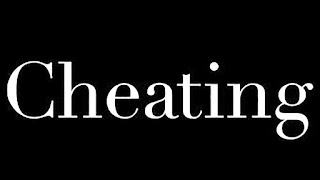THE ISSUE OF PERSONAL VALUE ADDITION
 |
| linkedin.com |
Adding value to one’s self seems to be the number one advice we are given as individuals especially as students in our bid to succeed in this life despite the many hindrances we face.
This can be achieved through furthering our studies (bachelors, masters, professional courses, PhD, etc.), taking up short courses, internships, volunteerism and so on.
Luckily for me today, I attended a panel discussion as one of the activities for the Accounting Students Association week celebration of the University of Ghana Business School. One of the panellists hammered on this issue and I decided to ask a question on it.
I asked how relevant this is in the long run because if we are all adding value to ourselves then won’t we all get to an even level again? Assuming we all have our bachelor’s degree and decide to attain a master’s degree as well, will we not all be on the same level (masters) just as we were previously (bachelors)? The same goes for taking short courses or interning or volunteering where we learn some leadership, time management, money management, public speaking or/and habit building skills. These skills will no longer be unique to one person and therefore not a distinguishing criterion when searching for people to work or liaison with.
I received two very different opinions. One from a panellist – which I believe was more practical or maybe he understood my question better and the another from an independent speaker – which I personally do not agree with or he did not comprehend my question.
The panellist’s response was on positioning. Decide on the industry you believe you are meant to be in and forecast on where they are heading towards (future) and position yourself there. For instance, many people took up professional courses as they foresaw a high demand for professionals of various fields in the future and right now their services are being utilized. A lot of people are also taking up courses on the technology or software side of their professions or occupations as they perceive a high demand for such individuals in the future.
On the other hand, the independent speaker believes we can all never be on the same level. To me, that is not entirely true even in its literal sense unless we base it on an extreme generalization and a very long run analysis. For instance, the likelihood of finding a good number of people who had first class for their accounting bachelor’s degree, have a chartered accounting certificate and have some extra skill (such as leadership or time management) is high.
The panellist’s view might still be problematic when analysed on an extremely deeper level but I believe it is a much better option because with that we are not influenced to follow the mass public. When we look at only business courses for instance, there is a professional course for most if not all of the basic options (accounting, finance, banking, public administration, insurance, marketing, management, human resource, etc.) and even with the accounting there are various specialisations such as financial accounting, management accounting, tax accounting, investment accounting, forensic accounting and so on.
In recent times, when you find yourself under any of the disciplines, you are advised to take up its professional course during or right after your bachelor’s but from the panellist’s view, you should divert to another disciple (for instance, having an accounting degree with a professional certificate in finance because you believe a person well rounded in the financial aspect of a company will become extremely relevant in the near future) or enter another field entirely ( such as law, politics, psychology, economics) even with the bachelor’s degree in a business related course. This is in line with his earlier statement during the event of furthering our studies in a course different from the course we took up for our bachelor’s degree.
Personally, I think the panellist’s perspective gives rise to that of the independent speaker because I am thinking of how soon and how likely it will be to get a good number of people who have done the exact same thing twice unless that is what most industry players are demanding.
Nonetheless, these two opinions are for you to analyse and choose which to work with. If you have anything to say such as a suggestion or constructive criticism or experience or opinion, then comment on this post but if you prefer a private means, contact me on Instagram @cee_jay_lynn and I will get back to you.
Thank You for Reading & All the Best!!!






I was thinking of more or less the exact same thing; that soon enough Masters degrees are going to be viewed as how bachelor's degrees are now. This was a good take on it especially from the panelist
ReplyDeleteYes exactly. It has been on my mind for a while now and I'm glad I was able to get clarification on it. Yes, his take was insightful.
Delete